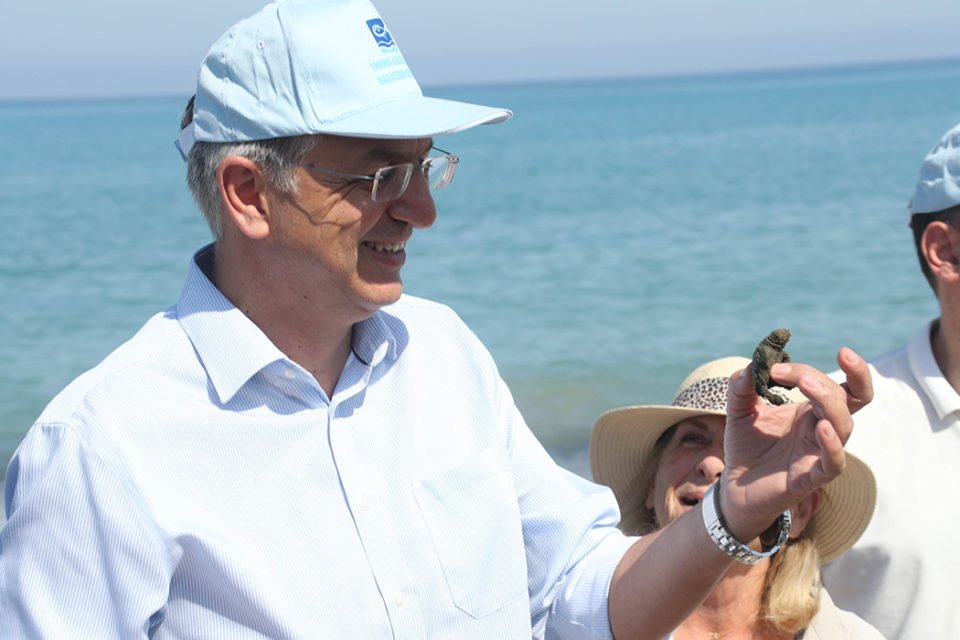The oceans and fisheries European commissioner nominee Costas Kadis has presented his answers in writing ahead of his November 6 hearing at the European Parliament, outlining his priorities for the viability of fishing and the protection of biodiversity.
The questions were posed by the EU parliamentary committees on fisheries (PECH) and environment, public health and food safety (ENVI).
The former agriculture minister’s answers to the two common questions the MEPs asked all candidates and the specialised questions by PECH and ENVI, along with his financial interest statement, were uploaded to the European Parliament website accompanied by all relevant documents. They can be found here.
Hearings will be held from November 4 to 12, when candidates will have to answer other questions by MEPs.
In his financial statement, Kadis mentions his bank accounts, five plots of land and his house. His wife works at the agriculture ministry, which he points out does not constitute a conflict of interests.
On October 10, the justice committee deemed that the financial statements of the candidates do not contain conflicts of interest and gave the green light to begin hearings.
On the same day, the written questions to the candidates were approved and the European Parliament set October 22 as the deadline for the answers.
“I will promote the policies of the new commission and my priority will be the viability of fisheries and the assessment of the common fishery policy, balancing the environmental and socioeconomic aspects,” he said.
Another priority would be the holistic approach to strengthening the blue economy and ocean governance, with the aim of protecting nature and producing renewable energy offshore to cover the needs of fisheries.
He also committed to promoting a strategic approach to international diplomacy on oceans.
On relations with the European Parliament, Kadis focused on transparency, adding that he would inform and involve the parliament to develop and implement policies.
To a PECH question on balancing the viability of fisheries and the protection of the environment, Kadis said fishing depended on the health of the oceans.
Replying to other questions, Kadis referred to the use of technology, research and data to improve selectivity in fishing and the efficiency of the sector, adding that he would continue to support investments in research and innovation.
Regarding equal opportunities for small fisheries, Kadis said he acknowledged the challenges and committed to work with the member states to bring about improvements.
Asked about the European Oceans Pact, Kadis said it was necessary to look holistically at how people interact with the ocean, how they impact the ocean, how the ocean impacts them, as well as at the opportunities that can be harvested from the ocean, acknowledging its importance in terms of geopolitics, food sovereignty, competitiveness, sustainability and climate change mitigation, all intrinsically linked to global welfare.
To a question regarding marine ecosystems, Kadis pointed out the need to protect them and at the same time support a competitive blue economy, through the efficient management of protected areas.
He said he would strengthen the approach to maritime spatial planning to help optimise the different uses of the sea and the ocean’s economic potential, while safeguarding its health and resilience.
Kadis also agreed with the position of the Commission advocating for prohibiting deep-sea mining until scientific gaps are properly filled.







Click here to change your cookie preferences